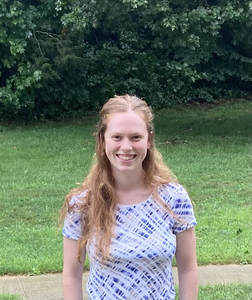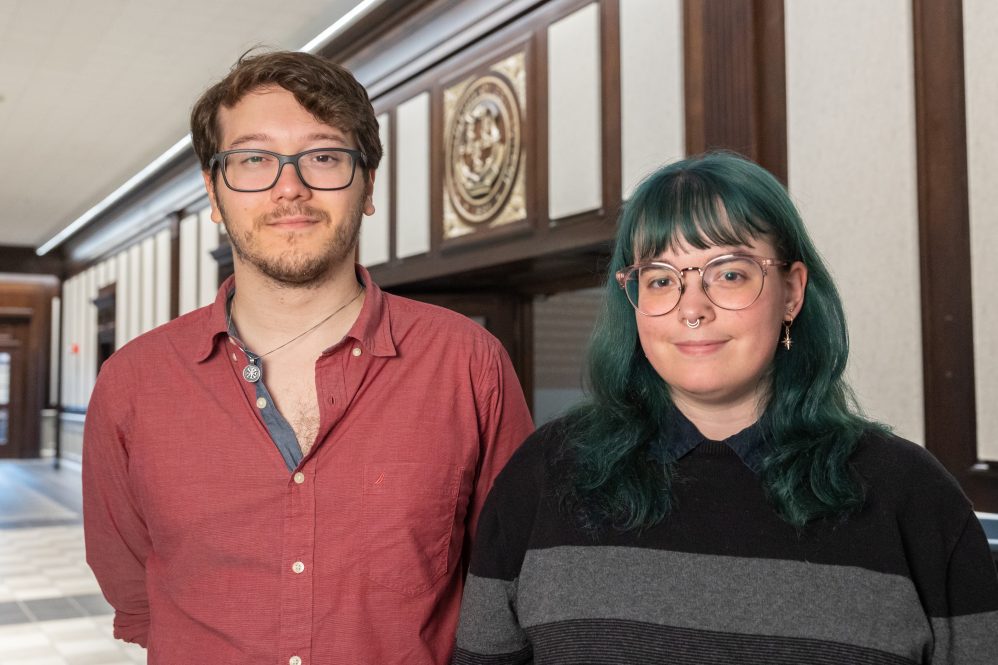Four UConn graduate students and six alumni have recently earned National Science Foundation Graduate Research Fellowships (NSF-GRFP).
The oldest graduate fellowship of its kind, the NSF-GRFP recognizes and supports outstanding students in NSF-supported disciplines who are pursuing research-based master’s and doctoral degrees at accredited institutions in the United States. In addition to a three-year annual stipend of $34,000, plus another $12,000 paid to the student’s home institution, fellows have access to a wide range of professional development opportunities over the course of their graduate careers.
The Graduate Research Fellowships are highly competitive, with annual acceptance rates of about 16% from among more than 12,000 applicants.
“Receiving a fellowship from the National Science Foundation is an extraordinary achievement and a tremendous honor,” says Vice President for Graduate Education and Dean of the Graduate School Kent Holsinger. “I’ve served on review panels many times, and I can tell you from personal experience that everyone who applies is very talented. To be selected to receive the fellowship or to be awarded an honorable mention is an achievement of which our students and their advisors can be very proud. We are fortunate to be part of a university that has such tremendously talented graduate students.”
“The NSF-GRFP is one of the most demanding applications out there,” says Vin Moscardelli, Director of UConn’s Office of National Scholarships and Fellowships. “When applying, students devote enormous energy to the process of learning to articulate themselves as scholars. We’re thrilled for the students who received the fellowship. But it’s also reassuring to know that regardless of the outcome, everyone who applies is developing and honing skills that will be critical to their future success.”
The four UConn graduate student recipients are:

Brandon Chan is a second-year doctoral student in ecology and evolutionary biology, who is advised by assistant professor Colin Kremer. Chan earned his undergraduate degree from the University of Texas-Austin and his research at UConn is focused on how to better understand how phytoplankton-bacteria mutualisms will change with climate change and what the impact may be on the marine environment and ecosystem. In Kremer’s lab, he uses a mixture of field, lab and theoretical based techniques to investigate how mutualisms change in natural and controlled settings and how this change might have larger repercussions in the future.
“I really enjoy conducting research and receiving this award means that I will have more flexibility, time, and resources to produce the best science that I can,” says Chan. “I am really grateful that this fellowship allows me to focus on my primary reason for pursuing a higher degree without having to worry about the financial burden that many graduate students face.”
Nick Gonzalez is a first-year doctoral student in anthropology and studies the subsistence strategies of Pleistocene hominins through the archaeofaunal record, under the guidance of Professor Natalie Munro. He earned his undergraduate degree from Stony Brook University and worked with a team of zooarchaeologists to study the faunal remains from the ancient Mesopotamian city of Ur to consider what subsistence strategies humans employed and the extent to which they interacted with the animals around them. He continues that research at UConn with a specific focus on the avian fauna from Ur.
“Being selected for the NSF GRFP gives me confidence in my ability to design archaeological research meaningfully,” says Gonzalez. “It means that my current way of thinking about how to design research is a step in the right direction. Similarly, as a non-traditional student who never finished secondary school, it is incredibly inspiring to receive such a prestigious award. It means that my struggle to reach this point has been recognized and evaluated on a national level and rewarded.”

Analisa Milkey is a second-year doctoral student at UConn in ecology and evolutionary biology working with Professor Paul Lewis. She earned her undergraduate degree from the University of California-Davis, where she conducted research on the butterflyfish. At UConn, she focuses on developing phylogenetic methods, relying on Bayesian statistical techniques to model the evolutionary histories of groups of organisms.
“Being awarded the GRFP means I will have more time to focus on my research as well as outreach activities I am passionate about,” says Milkey. “It also gives me more confidence in my skills as a researcher and in the project I am working on.
Maggie Ward is a first-year doctoral student in inorganic chemistry with a focus on crystallography. She earned her undergraduate degree from the University of Central Oklahoma and at UConn works in the lab of Assistant Professor J. Nathan Hohman. Her work is to synthesize and characterize metal-organic chalcogenolates, a class of semiconducting nanomaterials. The lab has primarily synthesized and studied silver materials, but her focus is currently those made from other metal sources, such as gold and copper.
“Being awarded the GRFP means the world to me because it’ll help ensure some stability over the next few years for me,” says Ward. “As a neurodivergent first-generation student who was incredibly poor during my undergraduate studies, it felt like I had no idea what I was doing and could barely focus on my degree. Having a guarantee that I’ll be able to focus on my research for the next few years is life-changing for me.”
The six UConn alumni who earned NSF Graduate Research Fellowships are:
Lauren Albert ’18 (CLAS); Vanessa Barton ’17 (ENG), who is now a doctoral student at the University of Wisconsin-Madison; Nora Khalil ’21 (ENG), who is now a doctoral student at Northeastern University; Matthew Pickett ‘21 (CLAS); Shanna Samels ’19 (CLAS), who is now a doctoral student at Drexel University; and Beril Tonyali ’19 (ENG).
The Office of National Scholarships & Fellowships (ONSF) is a resource for students interested in learning more about the NSF Graduate Research Fellowship and other prestigious scholarships and fellowships that support graduate study in all fields. ONSF is part of Enrichment Programs and is open to all graduate and undergraduate students at the University, including students at the regional campuses. For more information contact Vin Moscardelli, Director of UConn’s Office of National Scholarships and Fellowships.



